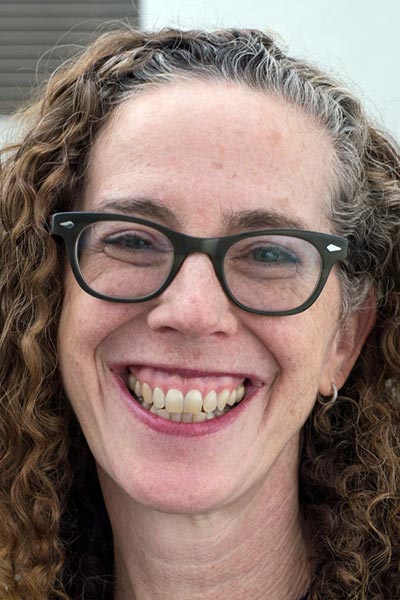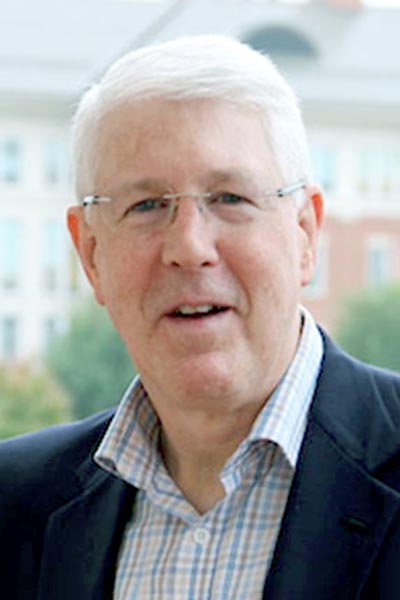Four forums scheduled for Monday evening
//
Estimated Read Time:
Four forums this evening, Monday, April 8, will cover topics including financial hardship and cancer care and patient outcomes; building treatment and research capabilities in low-resource settings; the potential impact of new weight-loss drugs on the obesity-cancer axis; and optimizing cancer vaccines. The forums will run concurrently from 5 – 6:30 p.m. PT in the convention center. Here’s a closer look at tonight’s forums.

FO03: Financial Hardship following Cancer Diagnosis: Opportunities for Improving Care and Patient Outcomes
Room 31, Upper Level, Convention Center
Financial hardship is common following a cancer diagnosis in the United States, especially with increasing treatment costs. Financial hardship can have lasting consequences, including worse health-related quality of life and symptom severity, disruption of medical care, and increased risk of mortality. Cancer survivors younger than 65 are more likely to experience financial hardship than older counterparts who are eligible for Medicare.
“Although financial hardship is most common among cancer survivors without health insurance coverage, even survivors with health insurance report financial hardship following a cancer diagnosis,” said Forum Chair Robin Yabroff, PhD, MBA, scientific vice president, Health Services Research, American Cancer Society. “Other factors associated with financial hardship include cancer type, cancer treatments received, lower household income, and, for working patients and family caregivers, not having paid sick leave to cover time away from work for cancer treatment and recovery.”
Speakers will address considerations and strategies for addressing financial hardship and using provider education and legal protections to mitigate the financial hardship associated with cancer diagnosis and treatment.

FO05: Optimizing Cancer Care in Low Resource Settings
Room 33, Upper Level, Convention Center
Cancer deaths in low- and middle-income countries and other low-resource settings are projected to nearly double over the next 20 years. Novel approaches to both cancer research and cancer care are needed to minimize the human and public health impact of rising cancer rates and incidence.
“Clinicians and researchers in low-resource settings are very aware of what is state of the art. They read the journals, they attend the meetings,” said Forum Chair Timothy R. Rebbeck, MD, FAACR, Vincent L. Greggory, Jr. Professor of Cancer Prevention and director of the Zu Family Center for Global Cancer Prevention, Harvard T.H. Chan School of Public Health. “Their problems are around resources: radiation therapy, equipment required for molecular pathology and diagnosis, trained workforce, sophisticated drugs. There are multiple bottlenecks that keep people from receiving state-of-the-art diagnosis and treatment.”
There are multiple approaches to adapt technologies and therapies to low-resource settings. Hypofractionation of radiotherapy doses, as one example, can be at least as effective as traditional radiotherapy, an important advantage in any setting where demand outstrips capacity. Speakers will also discuss assessing readiness for clinical research and framework for resource stratification in low-resource settings.
“We need to improve care in low-resource settings, and we can learn from those settings how to make care more efficient for all of our patients,” Rebbeck said. “The whole world can benefit from improving care in low-resource settings.”

FO07: Breaking the Obesity-Cancer Link: The Role of Incretin Mimetics
Room 30, Upper Level, Convention Center
The worldwide epidemic of obesity, a risk and progression factor for more than a dozen cancers, presents a global health threat, and effective strategies to mitigate this threat are needed. Incretin therapies can induce weight loss comparable to bariatric surgery, but the anticancer benefits and possible risks of these drugs are not clear. This session will provide preclinical and clinical evidence regarding the potential of current and emerging weight-loss drugs to reduce the impact of obesity on cancer, as well as the latest evidence on safety concerns regarding thyroid and pancreatic cancer.
Session Chair Stephen D. Hursting, PhD, MPH, UNC Lineberger Comprehensive Cancer Center, said there seems to be immune-enhancing effects to these drugs in addition to their weight-loss effects.
“That’s where some of our attention has gone,” Hursting said. “Particularly T cells. The effector T cells that surveil and kill tumor cells display GLP-1 receptor up-regulation when they are activated. These drugs, which are GLP-1 receptor agonists, may be pushing those cancer killers in a good direction.”
He pointed out that incretin mimetics might not be for everyone, but for many people they can provide a weight-loss option when lifestyle changes alone are not sufficient. “Incretin mimetics are a game changer in the weight-loss field, and our initial data suggests they have great potential to reduce the impact of obesity on cancer risk and outcomes,” Hursting added. “However, there are many unanswered questions. For example, what cancer types respond to these drugs? How do incretin mimetics interact with chemotherapy or immunotherapy? Are these forever drugs or can diet and exercise maintain the anticancer benefits achieved by the drug-induced weight loss? I hope this session stimulates new research to begin to address the many unknowns regarding incretin mimetics and obesity-related cancers.”

FO08: Optimizing Cancer Vaccines through Advances in Immunogenomics and Immunopeptidomics
Hall GH, Ground Level, Convention Center
Tumor cells altered by genomic mutations, dysregulated RNA splicing, post-translational modifications, dark matter-derived transcripts, and other changes typically express neoantigens, novel classes of antigens that represent novel immune targets. Vaccination against neoantigens has confirmed that neoantigens elicit strong T-cell response and has been associated with improved outcomes in early trials.
But challenges remain, including optimal prediction, selection, and sourcing of neoantigens and the assurance of high potency anti-tumor T cells that will reliably elicit broad protective and durable clinical effect. An expert panel will review multiple approaches to improving neoantigen detection and quality enrichment as well as novel biophysical models that use evolutionary dynamics to predict quality neoantigens. Nina Bhardwaj, MD, PhD, professor of medicine and director of immunotherapy at Icahn School of Medicine at Mount Sinai, will chair the forum.




